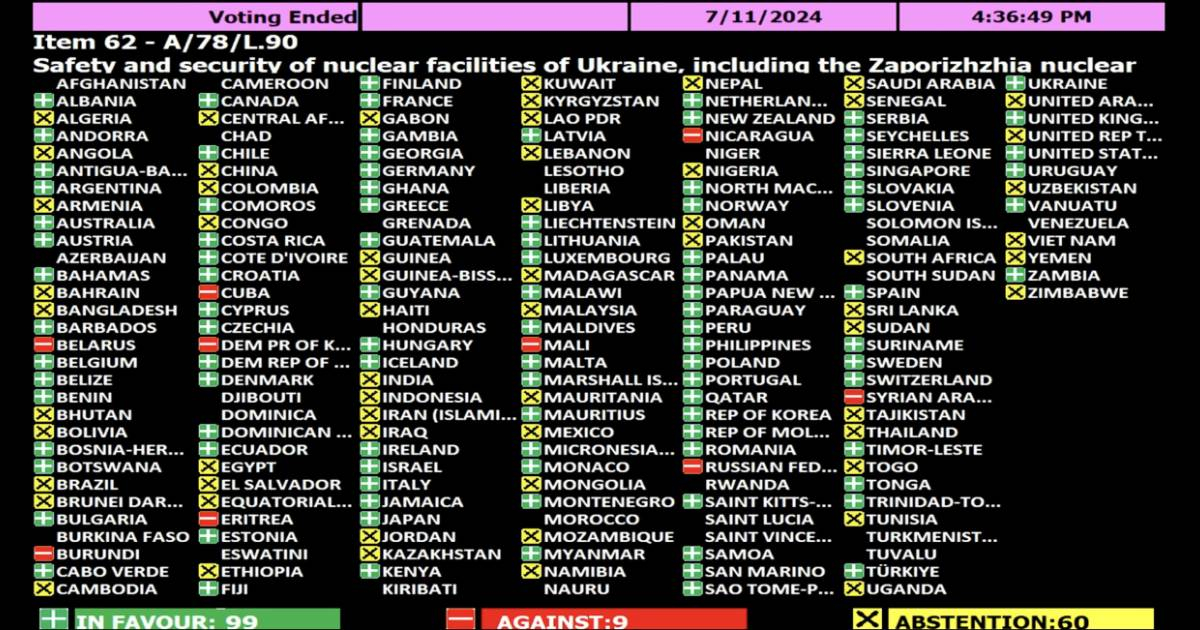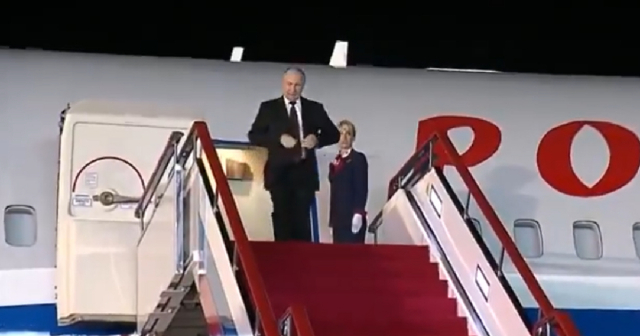
The Cuban regime voted at the United Nations General Assembly (UN) against Russia's withdrawal from the occupied nuclear power plants in Ukraine.
That entity adopted a resolution demanding that the Russian Federation immediately return control of the Zaporizhzhia nuclear power plant to the Ukrainian authorities to ensure its safety. The resolution was approved with 99 votes in favor, nine against, and 60 abstentions.
Among the countries that voted against are Cuba, along with Belarus, Burundi, North Korea, Eritrea, Mali, Nicaragua, the Russian Federation, and Syria.
The Cuban delegate expressed her dissatisfaction with the lack of an inclusive process in drafting the resolution and added that her delegation would have proposed certain amendments if given the opportunity to hear other positions.
According to Cubans, the draft does not facilitate cooperation and dilutes key nuclear security principles.
The UN resolution demands that Russia withdraw its military and unauthorized personnel from the nuclear power plant, and grants the International Atomic Energy Agency (IAEA) Support and Assistance Mission full and timely access to all important areas for nuclear safety at the Zaporizhzhia plant.
Furthermore, it condemns Russia's non-compliance with the relevant resolutions of the Assembly and the IAEA, and demands the immediate cessation of Russian attacks on Ukraine's critical energy infrastructure.
The representative of Ukraine, when presenting the resolution, recalled Russia's armed attack on the Zaporizhzhia plant and emphasized that his country has always been responsible in nuclear security matters.
Likewise, he highlighted Ukraine's cooperation with the IAEA and condemned Russia's refusal to comply with the resolutions, violating fundamental principles of nuclear security.
On the other hand, the representative of Russia stated that his country regularly provides data on the situation at the plant and criticized the non-inclusive and non-transparent method used to draft the resolution, urging states to vote against what he described as a harmful and "disconnected from reality" initiative.
The representative of Syria also criticized the text for being highly politicized and crafted with little transparency.
Meanwhile, the representative of South Africa, who abstained, praised the efforts of the IAEA and argued that technical matters are more appropriate for their expertise.
Other countries such as Mexico and China, which also abstained, underlined the importance of preserving the integrity of nuclear facilities and the need to resume dialogue to reach a political solution to the conflict in Ukraine.
Despite the "politically inspired" elements of the text, the delegate from Ghana explained that they voted in favor in the hopes that it will serve as a practical expression of the collective desire of the international community for peace.
Representatives from Qatar and Jordan also voted in favor, supporting regional and international efforts to resolve the conflict.
Since the beginning of the war in Ukraine, the Havana regime has continued to support Russia, its old political ally, in all international bodies condemning Moscow's invasion, despite the rejection of the island's population to the war where dozens of Cubans recruited by the Kremlin have died.
What do you think?
COMMENTFiled under:






